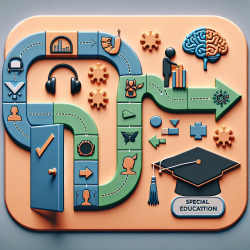The ability to alter emotional responses is crucial for overall well-being and effectively managing life's demands. Research from the HeartMath Institute highlights how cardiac coherence and self-regulation can significantly impact emotional stability and cognitive function. This blog explores these concepts and provides practical applications for practitioners seeking to enhance their skills.
Understanding Cardiac Coherence
Cardiac coherence refers to the harmonious rhythm of the heart, which is closely linked to emotional states. When individuals experience positive emotions, their heart rhythms become more coherent, facilitating higher cognitive functions and emotional stability. This physiological state is achieved through the interaction between the heart and brain, forming a feedback loop that influences emotional experience.
The Role of Self-Regulation
Self-regulation involves managing one's thoughts, emotions, and behaviors to achieve desired outcomes. It is a skill that can be developed through practice and is essential for maintaining emotional balance. The research emphasizes that self-induced positive emotions can increase cardiac coherence, leading to improved self-regulatory capacity.
Practical Applications for Practitioners
- Heart-Focused Breathing: Encourage clients to focus their attention on the heart area while breathing slowly and deeply. This technique helps shift the physiological state to one of coherence.
- Emotional Activation: Guide clients to consciously evoke positive emotions such as gratitude or appreciation. This practice enhances cardiac coherence without requiring changes in breathing patterns.
- Regular Practice: Consistent use of these techniques can lead to lasting improvements in self-regulation and emotional stability.
The Impact on Trauma Recovery
Trauma often disrupts an individual's ability to self-regulate, leading to fragmented experiences and heightened vigilance. By incorporating cardiac coherence techniques, practitioners can help clients establish new physiological baselines that support recovery from trauma. This approach fosters a sense of wholeness and well-being by promoting synchronization between physiological systems.
Encouraging Further Research
The findings from the HeartMath Institute provide a foundation for further exploration into the benefits of cardiac coherence and self-regulation. Practitioners are encouraged to delve deeper into this research to enhance their understanding and application of these techniques in clinical settings.
To read the original research paper, please follow this link: Cardiac coherence, self-regulation, autonomic stability, and psychosocial well-being.










